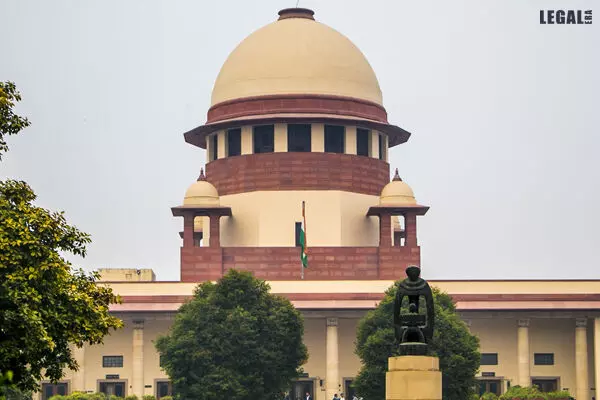- Home
- News
- Articles+
- Aerospace
- Artificial Intelligence
- Agriculture
- Alternate Dispute Resolution
- Arbitration & Mediation
- Banking and Finance
- Bankruptcy
- Book Review
- Bribery & Corruption
- Commercial Litigation
- Competition Law
- Conference Reports
- Consumer Products
- Contract
- Corporate Governance
- Corporate Law
- Covid-19
- Cryptocurrency
- Cybersecurity
- Data Protection
- Defence
- Digital Economy
- E-commerce
- Employment Law
- Energy and Natural Resources
- Entertainment and Sports Law
- Environmental Law
- Environmental, Social, and Governance
- Foreign Direct Investment
- Food and Beverage
- Gaming
- Health Care
- IBC Diaries
- In Focus
- Inclusion & Diversity
- Insurance Law
- Intellectual Property
- International Law
- IP & Tech Era
- Know the Law
- Labour Laws
- Law & Policy and Regulation
- Litigation
- Litigation Funding
- Manufacturing
- Mergers & Acquisitions
- NFTs
- Privacy
- Private Equity
- Project Finance
- Real Estate
- Risk and Compliance
- Student Corner
- Take On Board
- Tax
- Technology Media and Telecom
- Tributes
- Viewpoint
- Zoom In
- Law Firms
- In-House
- Rankings
- E-Magazine
- Legal Era TV
- Events
- Middle East
- Africa
- News
- Articles
- Aerospace
- Artificial Intelligence
- Agriculture
- Alternate Dispute Resolution
- Arbitration & Mediation
- Banking and Finance
- Bankruptcy
- Book Review
- Bribery & Corruption
- Commercial Litigation
- Competition Law
- Conference Reports
- Consumer Products
- Contract
- Corporate Governance
- Corporate Law
- Covid-19
- Cryptocurrency
- Cybersecurity
- Data Protection
- Defence
- Digital Economy
- E-commerce
- Employment Law
- Energy and Natural Resources
- Entertainment and Sports Law
- Environmental Law
- Environmental, Social, and Governance
- Foreign Direct Investment
- Food and Beverage
- Gaming
- Health Care
- IBC Diaries
- In Focus
- Inclusion & Diversity
- Insurance Law
- Intellectual Property
- International Law
- IP & Tech Era
- Know the Law
- Labour Laws
- Law & Policy and Regulation
- Litigation
- Litigation Funding
- Manufacturing
- Mergers & Acquisitions
- NFTs
- Privacy
- Private Equity
- Project Finance
- Real Estate
- Risk and Compliance
- Student Corner
- Take On Board
- Tax
- Technology Media and Telecom
- Tributes
- Viewpoint
- Zoom In
- Law Firms
- In-House
- Rankings
- E-Magazine
- Legal Era TV
- Events
- Middle East
- Africa
Supreme Court Rejects Plea Seeking SEBI’s Investigation Report On Hindenburg- Adani Allegations

Supreme Court Rejects Plea Seeking SEBI’s Investigation Report on Hindenburg- Adani Allegations
The Supreme Court on Monday dismissed an application filed by advocate Vishal Tiwari, challenging the Registrar’s order dated August 5, 2024, which had declined to register his previous plea related to the Hindenburg-Adani Group controversy.
A bench led by Justice JB Pardiwala rejected Tiwari’s application, which sought directions for the Securities and Exchange Board of India (SEBI) to submit its conclusive investigation report on allegations made by Hindenburg Research against the Adani Group. The Registrarhad earlier refused to accept the miscellaneous application, citing a lack of reasonable cause.
Tiwari contended that the rejection of his plea had denied him access to justice. He argued that SEBI was bound to complete its investigation within the three-month timeline set by the Supreme Court in an order dated January 3, 2024. He asserted that the term “preferably” in the court’s directive should not be interpreted as an indefinite extension of the investigation period.
The petitioner further stated that the Registrar’s refusal to register his application under Order XV Rule 5 of the Supreme Court Rules, 2013, had effectively curtailed his fundamental rights. He urged the court to overturn the lodgment order and direct the Registry to register his miscellaneous application for appropriate judicial consideration.
The plea also referenced a blog post by Hindenburg, which alleged that SEBI had shown a "surprising lack of interest" in investigating Adani’s alleged network of undisclosed offshore entities in Mauritius. Citing whistleblower documents, the petition claimed that SEBI’s
Chairperson and her husband were linked to offshore funds allegedly controlled by Vinod Adani, the elder brother of Adani Group Chairman Gautam Adani. It was further alleged that these funds were used for round-tripping and stock price inflation.
Despite SEBI's dismissal of these allegations as baseless and the Supreme Court’s prior ruling that third-party reports cannot be considered conclusive, the petitioner argued that the controversy had created doubt among investors and the public. Given these circumstances, he maintained that SEBI must conclude its pending investigations and publicly disclose its findings.
However, the Supreme Court found no merit in the plea and upheld the Registrar’s decision to reject the application.



